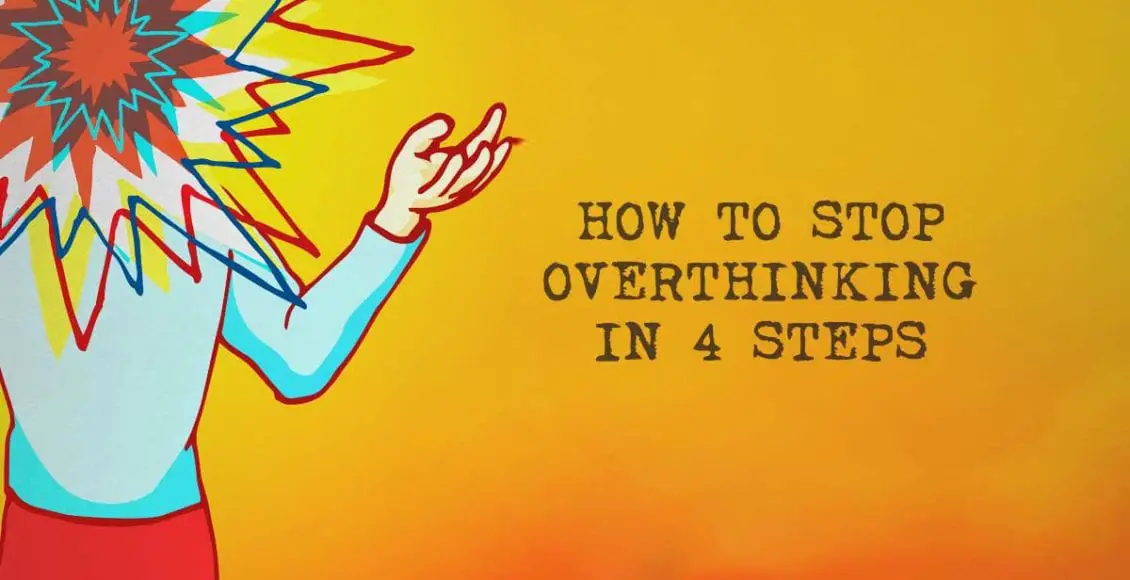“We are dying from overthinking. We are slowly killing ourselves by thinking about everything. Think. Think. Think. You can never trust the human mind anyway. It’s a death trap,” explained Anthony Hopkins.
Is your habit of overthinking keeping you from living your best life?
Here are four steps you can take to fight this dynamic:
1. Learn to find the bigger picture.
This issue you are concerned with – will it matter tomorrow? A month from now? Five years from now? Ten years? Will you even remember what you were so worried about? Take a step back, and realistically place the importance of this single situation in the context of your whole life. When we overthink, we focus excessively on one issue. This makes it appear much larger than it truly is. By placing it within a bigger picture, your brain is able to shrink it back to its appropriate size. Doing so helps us to stay calm and make decisions with a greater sense of wisdom and insight. As Habeeb Akande explained, “The more you overthink the less you will understand.”
2. Learn to identify and address your own negativity.
As wrote, “There is absolutely nothing to gain by being too hard on yourself. The most that you could do is to put in your best in all that you do and let God do the rest.” Overthinkers are often their own worst enemy. This is a behavior that comes from a deep sense of perfectionism, which is often paired with a great deal of self-doubt. What are the ideas that are causing you to become overwhelmed? Do you think you’re not good enough? Not smart enough? Not loveable enough?
You can only fight these misconceptions when you identify them with honesty and clarity. Listen to the way you speak to yourself. If you would not say these words to a beloved friend, work to change them. “I’m not lucky enough to get that job,” for example, can become “I am on a road to finding the job that is right for me. Maybe this is it.”
3. Focus on what you can control.
The Serenity Prayer is known for its popularity among recovering addicts. Its universal message of wisdom and peace can easily be applied to chronic overthinkers, as well. Its simple words ask a higher power to “Grant me the serenity to accept the things I cannot change; the courage to change the things I can; and the wisdom to know the difference.” Perhaps you can not fix your situation. However, there is likely at least one thing you can do to move yourself in the right direction.
Even something small, such as engaging in self-care or doing something kind for another person, can help to put your mind at ease. The next time you find yourself spiraling, try to identify one action that can make you feel competent, useful, and powerful in your current situation.
4. Teach yourself to accept the uncertain.
When our problem involves an element of uncertainty, we are far more likely to worry excessively and feel out of control. The decision of where to go to college, for example, seems much more complex before we know where we have been accepted. Thankfully, there is something simple we can do to take away the power of uncertainty: acknowledge it. Identify the uncertainties that are causing you worry. If there are areas in which you can find more information, do so.
For the rest, acknowledge that you do not have the information you would like to. Wait until you have a clearer picture to make your decision – or if more information isn’t coming, accept that you will have to do your best with what you have.
“The sharpest minds often ruin their lives by overthinking the next step, while the dull win the race with eyes closed,” said Bethany Brookbank.


